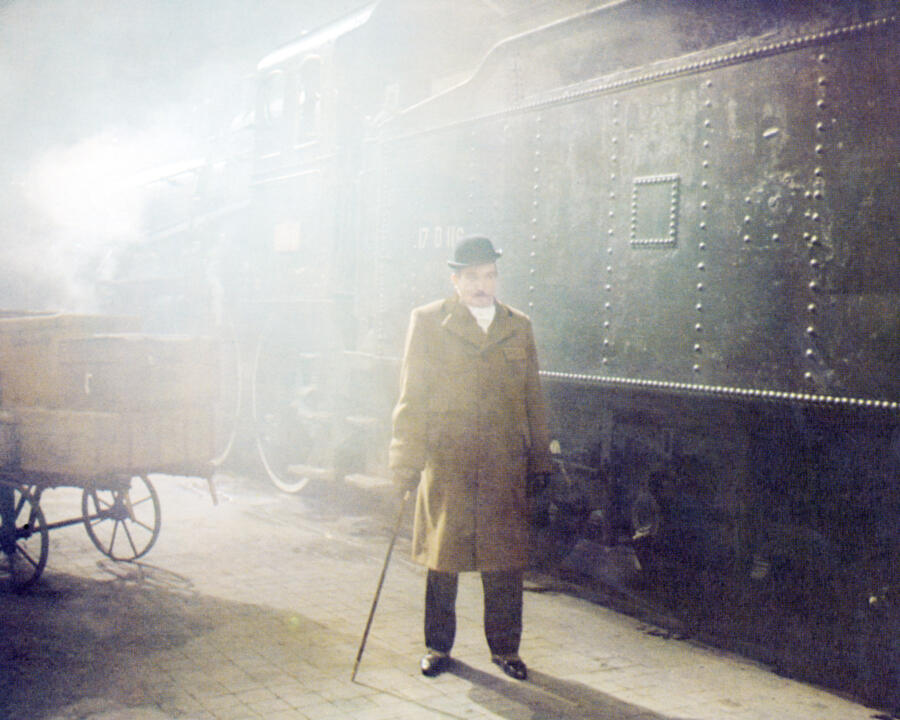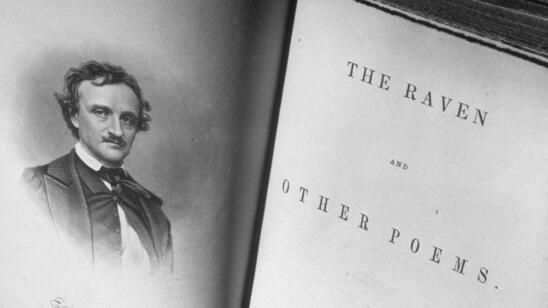Albert Finney as Hercule Poirot in the 1974 film Murder on the Orient Express, based on the novel by Agatha Christie.
Sophie Hannah, whose psychological crime thrillers regularly chart on the bestseller lists, took on the Herculean task (hah!) of recreating Agatha Christie’s famous detective in The Monogram Murders and, most recently, Closed Casket. We asked what it’s like to channel the renowned investigator with the signature mustache.
True Crime: How hard was it to get Poirot’s tone?
Hannah: I’ve been a huge fan of Agatha Christie since I was twelve when I devoured The Body in the Library and collected all her books after that. By the age of fourteen, I’d bought and read them all. Quite simply, Agatha’s books are in my literary DNA, and she set the template for what I consider a crime novel should be. Getting Poirot’s voice right wasn’t hard at all — I grew up with Poirot and know him as well as any character I created, or indeed as anyone I’ve known for years in real life.
RC: Did you have to struggle to work in references to his moustache and “little gray cells”?
Hannah: Poirot’s moustache and little gray cells are huge aspects of his character — he’s always banging on about them! They’re part of who he is – like his love of order and method, and his deep interest in character and psychology. Imagine Poirot with little pink cells and no moustache to twirl. It doesn’t bear thinking about.
RC: Is it daunting to try to fill such iconic shoes as those of Agatha Christie?
Hannah: For me, the challenge is to create a puzzle that is sufficiently baffling. He’s the best detective in the world, and he needs a tough case with a simple, unexpected solution. He needs mysteries that are worthy of his attention.
RC: Was it hard to write about Poirot in modern days, since things are so different than from Christie’s day (cell phones, DNA testing, etc.)?
Hannah: Poirot lives in a very different world from the one we inhabit today, it’s true. But whatever era he lived in, he would solve any case through pure logic and psychology. There was no CCTV and no DNA evidence in Agatha’s time, which is a relief when you’re trying to keep the killer a secret. Plots stay largely the same but details do change, and the timeframe can propel action. In Closed Casket, Poirot has to travel from Ireland to England to investigate someone’s background. He can’t just whip out a laptop and Google it.
RC: Do you have any plans to write from the viewpoint of Miss Marple or any other character of Christie’s?
Hannah: I love Miss Marple so much, but I’d never write a Miss Marple book, or a Tommy and Tuppence or anything else like that. I think Poirot might be jealous — and so might my other series detective, Simon Waterhouse. I want to do justice to Poirot. I have been commissioned to write two more Poirot books, coming out in 2018 and 2020, and that is the best thing in the world. Sometimes I still have to remind myself that it’s real.
Sophie Hannah’s latest non-Poirot novel, Keep Her Safe, is out in September (William Morrow).
(Image: Photo by Silver Screen Collection/Getty Images)


